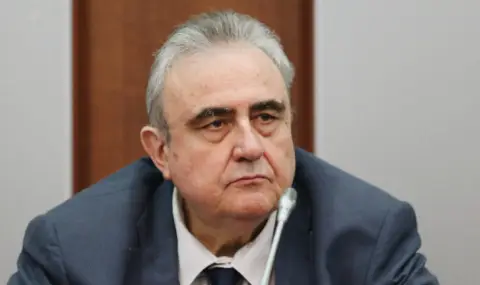The refusal to implement the deal with the two reactors could be an indicator of some longer-term program of Bulgarian policy towards Ukraine and the war in Ukraine.
This is what political scientist Prof. Ognyan Minchev told FOCUS.
The last caretaker government of Dimitar Glavchev refused to sign the defense cooperation agreement with Ukraine, making Bulgaria one of the three European countries along with Hungary and Slovakia that do not have such an agreement with Kiev, he recalled. A few days ago, the regular government stopped the deal for the sale of the reactors from the "Belene" NPP; of Ukraine.
"Given the obvious state of affairs from a technological, economic and political point of view, which hardly favors the construction of the "Belene" NPP under any other conditions and considerations, this decision of the Bulgarian government is a bit strange. It is hardly possible for Bulgaria to benefit from these reactors, even if there is a very strong change in the international conditions for the construction of the "Belene" NPP. In my opinion, this decision is problematic from the point of view of bilateral relations with Ukraine. I do not think that such abrupt gestures should be made", added the political scientist.
He defined the government's foreign policy as balanced and reasonable.
It is related to maintaining Bulgaria's main priorities - integration into the European Union and maintaining positions that strengthen trust as a partner in European integration, added Prof. Minchev.
